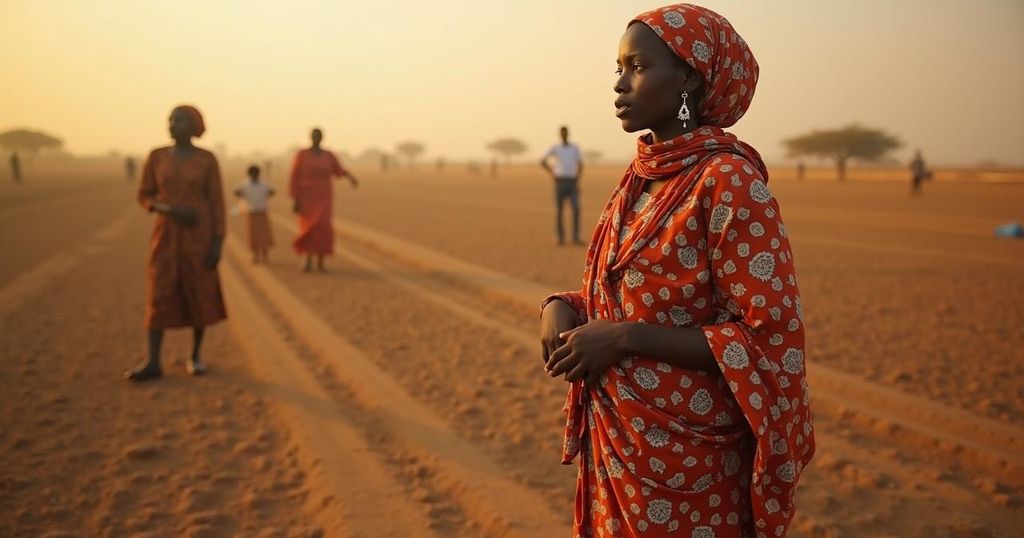The World Health Organization has declared that starvation is widespread in war-torn Sudan, where approximately 12 million individuals are displaced, and nearly 25 million people require urgent support. WHO Director-General Dr. Tedros Adhanom Ghebreyesus has highlighted the shocking humanitarian crisis and called for increased global attention, emphasizing racial disparities in the response to conflicts. A recent famine declaration near el-Fasher reflects the severity of the situation, necessitating urgent international action to address the needs of the Sudanese populace.
In a stark assessment of the humanitarian crisis in Sudan, the World Health Organization (WHO) has reported that starvation is pervasive throughout the war-torn nation. During a recent appearance on the BBC’s Today programme, WHO Director-General Dr. Tedros Adhanom Ghebreyesus stated, “The situation in Sudan is very alarming… the massive displacement – it’s now the largest in the world, and, of course, famine.” Dr. Tedros articulated the dire circumstances facing the country, where an estimated 12 million individuals have been uprooted from their homes amid a brutal civil conflict that erupted in April 2023 between the Sudanese army and the paramilitary Rapid Support Forces (RSF). Dr. Tedros recounted his recent visit to a camp for internally displaced persons and a hospital, where he witnessed the devastating impact of famine. He poignantly described the scene: “You see there many children skin and bone, emaciated.” He emphasized that nearly 25 million people—close to half of Sudan’s population—”need support,” criticising the global community for its inadequate response, which he believes is influenced by racial factors. The humanitarian catastrophe has claimed thousands of lives since the beginning of the civil war, yet awareness and support from the international community remain significantly low. Dr. Tedros lamented, “Especially in Africa, I think the attention is really, really low… That’s the sad part, because you see it repeatedly, not just in Sudan.” He contrasted this situation with the global response to the war in Ukraine, highlighting a disparity in the humanitarian attention given based on race, stating, “the world did not give ‘equal attention to black and white lives'”. He urged mainstream media to amplify the plight of Sudan, referring to it as a tragedy that warrants urgent global attention. As recent reports indicate, a UN-backed committee has declared a famine affecting a camp near el-Fasher in Darfur housing approximately 500,000 displaced individuals. The ongoing conflict can be traced back to a power struggle following a coup in 2021, leading to the catastrophic state the nation finds itself in today. Accusations have been leveled against the United Arab Emirates for its alleged support of the RSF, while Saudi Arabia maintains close ties with the Sudanese government. Mediation efforts led by Saudi Arabia and the United States have thus far proven ineffective in resolving the conflict.
The humanitarian crisis in Sudan has reached alarming levels due to a protracted civil war ignited in April 2023 between the Sudanese army and the RSF. This conflict has resulted in significant civilian suffering, with millions displaced and in desperate need of assistance. The role of foreign powers, particularly the United Arab Emirates and Saudi Arabia, has contributed to the complexity of the situation, as allegations of external support for the warring factions persist. The global response to this crisis has been criticized for its stark contrast to the responses activated for conflicts in other regions, raising concerns about systemic inequalities in humanitarian aid based on race.
The situation in Sudan requires immediate attention from the global community. The WHO’s alarming report underscores the urgent need for humanitarian assistance as famine affects millions. The international response to humanitarian crises must be equitable, taking into consideration the needs of all affected populations, irrespective of race. It is imperative to increase advocacy and support for Sudan to prevent further loss of life and provide relief to millions in dire circumstances.
Original Source: www.bbc.com







